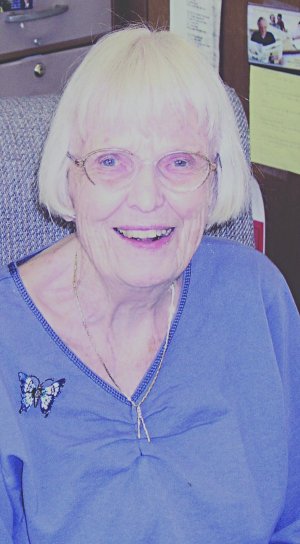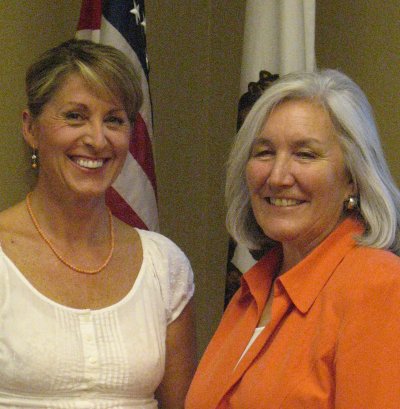- Lake County News Reports
- Posted On
Foodie Freak: What a crock ... pot
1. You can’t see the bride on the wedding day
2. You can’t go fishing the morning of your wedding (Trust me, I know this one personally!)*
3. The couple gets a slow cooker among the gifts.
The name “Crock-Pot” was trademarked in 1971 by Rival Industries and now belongs to Sunbeam, so using the term “slow cooker” keeps me from having to send them a royalty check at the end of every sentence. The main purpose of a slow cooker is to throw a bunch of items into it, turn it on, and come back several hours later to a fully cooked, delicious braised meal.
Technically people have been braising foods (cooking foods in a liquid for long periods of time) for millennia, while the slow cooker is a product of the past century.
The main thing that started me using the slow cooker was that I knew on occasion I wouldn’t make it home in time to make dinner yet wanted to have something waiting for my family that didn’t come out of a box. I also like the fact that it uses less energy than an oven or stovetop, and it doesn’t heat the house up and counteract the air conditioning during the summer.
As I became more involved in the cooking for the family I started learning more about using the slow cooker. The thing that makes it so great to work with is not only does it take almost no work to use, but it works best when using the cheapest cuts of meat so it’s great for the wallet too.
When you first start using your slow cooker you should expect to have an anti-honeymoon period while you learn the settings. You will burn this and undercook that, but don’t become disheartened because all slow cookers are different and it takes a little time to feel out your slow cooker’s personality.
My slow cooker has high, low and keep warm settings. I like to start the process on high, and when the liquid bubbles I switch it to low for the remaining cooking process. Most slow cookers maintain a temperature between 175 (on low) and 200 degrees Fahrenheit (on high).
While you can just throw a raw hunk of meat into a slow cooker and it will cook just fine, searing the meat on all sides in a frying pan before placing in the cooker will make for better-tasting results. Meats that work best in a slow cooker are usually high in fat and with lots of connective tissue. These dissolve during the slow cooking process and create a lower fat, tender, moist and unctuous finished dish.
Using lean meats in a slow cooker doesn’t produce good end results since they don’t have the fats or connective tissues to baste them during the process. They wind up with good flavor, but with a hockey-puck texture and no moisture content.
The meats your slow cooker will work best with are pork shoulder, beef chuck, and chicken or turkey thighs and drumsticks. Dairy products tend to curdle when kept too long in a slow cooker, and seafood gets tough and chewy, so they should be avoided, or added in the last hour of cooking at the most.
Since slow cookers don’t lose much moisture during the cooking process like, for instance, soup does, you can use less liquid in a recipe that wasn’t meant for a slow cooker and still have great results.
WARNING! Some raw beans (including fava and kidney beans) contain a toxin called PHA (phytohaemagglutinin, if you prefer) that is destroyed once the beans are cooked at high temperatures, like by boiling (212 degrees). Slow cookers may not heat high enough to destroy this toxin and can even raise the toxicity of the beans, so either cook your beans before adding them to a slow cooker or use canned beans to avoid harming your diners.
I came up with this recipe just the other day when I wanted to find a use for the leftover tortilla chips that are always found in the bottom of a bag after everyone has used the whole chips for dipping. While utilizing the leftovers of a bag of chips and a jar of salsa, it results in a very enchilada-like flavor.
Pork shoulder with tortilla sauce
1 pork shoulder (seared)
6 cups chicken stock
2 cups leftover crushed up tortilla chips
1 cup salsa
3 tablespoons green Tabasco sauce
1 cup shredded cheddar cheese (optional)
Sour cream (optional)
Add all of the ingredients except the cheese and sour cream into your slow cooker and, depending on the settings, start it on high. After a couple of hours set to low (although leaving it on high won’t affect much). At serving time, remove the pork and whisk the sauce remaining in the pot until smooth. Serve the pork and pour over the sauce and sprinkle on the cheese and a dollop of sour cream.
*My wife married into a fishing family - so much of an enthusiastic fishing family that when she announced our wedding date as being the day fishing season opened, calls came in asking if this announcement was some sort of joke, and relatives hemmed and hawed for weeks deciding if they could even attend an event that coincided with such an important day (Fishing Opener, of course). And my wife had nightmares for weeks before the wedding of me showing up to the church, late, in tuxedo shirt and vest and waders, with a fish in each hand and asking “Do I have time to clean these?” So men, just for the record, No fishing on your wedding morning! If my family could handle it, yours can. (Mumbling under my breath: “Although I still don’t understand why I couldn’t ... what’s the big deal? ... shheeessss!”)
Ross A. Christensen is an award-winning gardener and gourmet cook. He is the author of "Sushi A to Z, The Ultimate Guide" and is currently working on a new book. He has been a public speaker for many years and enjoys being involved in the community.
{mos_sb_discuss:4}

 How to resolve AdBlock issue?
How to resolve AdBlock issue? 









